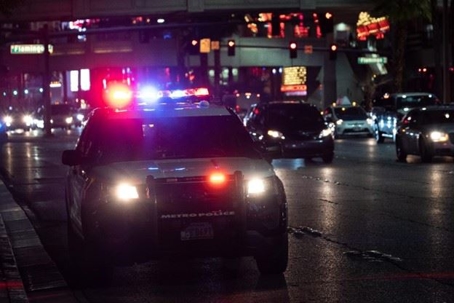If you’ve ever seen a police officer’s lights flash while driving after drinking any amount of alcohol, you’ve probably thought about what you would do if you were hypothetically the driver that was pulled over. Maybe you would comply with all of the officer’s requests, or maybe you imagine yourself being more withholding. However, you may need to reconsider if any part of your plan involves refusing to take a breathalyzer test. This can have serious consequences, regardless of if your driving was impaired at the time. Read on to learn more about Florida’s 10-day rule for DUIs. For your free defense consultation with The Watson Firm, PLLC, click here or call 850-607-2929.
Implied Consent – Fla. Stat. § 316.1932
Florida, like many other states, has an “implied consent” law to support DUI detection and prevention. These laws usually lay out strict penalties for refusing to take a breathalyzer test when pulled over by a police officer. You can find the statutory language in Fla. Stat. § 316.1932. Anyone who drives in the state of Florida has, by law, implicitly given their consent to submit to chemical or breath testing. Someone who refuses to submit to this testing when pulled over while driving will have their driver’s license suspended for one year. If the driver has previous suspensions on their license, it will be suspended for 18 months and is considered a first-degree misdemeanor.
Exceptions To Implied Consent Law
There are some situations where someone can’t legally refuse to submit to chemical testing, and somewhere chemical testing can be conducted against the driver’s will. For example, a driver who is seriously injured in an accident and rendered unconscious doesn’t have the capacity to refuse a chemical or breathalyzer test. Some physical and mental conditions can also reduce the driver’s capacity to consent to or refuse a chemical test.
Fla. Stat. § 316.1933[1]Allows a police officer to forcibly take a chemical test from a driver if the police officer has reasonable cause to believe that the driver is intoxicated and caused an accident that led to someone's serious injury or death. The officer should use reasonable force, and the test should be conducted in a reasonable manner. For the purposes of this statute, a serious bodily injury is one that creates a “substantial risk of death, serious personal disfigurement, or protracted loss or impairment of the function of any bodily member or organ.” Serious bodily injury can occur to the forcibly-tested driver or any other party involved in the accident.
Formal Review
Telling someone to agree to a breathalyzer test may come too little, too late. If a driver has already refused to submit to chemical or breath testing, they will have 10 days to request a formal review. You can also request an informal review through the Florida DMV. A review must be held within 30 days of a valid request.
The arresting officer, as well as any other officers who were present, will come to a formal review hearing. They can give testimony, as can you and any other witnesses who may be available. You may try to prove that the officer did not actually demand a breath or chemical test from you or that the driver's license suspension was otherwise invalid. It can take creativity to think of evidence that proves your arguments. You could also show that the officer didn’t have a constitutional reason to pull you over or request a chemical test. The officer also could have failed to warn you of the license suspension for refusal to submit to testing. You should review your situation with an experienced defense attorney to determine which defenses may be available.
A driver who loses their formal review hearing can contest the ruling. This is done by filing a petition for writ of certiorari with the court that issued the ruling you wish to appeal. Appeals generally have a very low success rate, but it doesn’t mean that a driver that has a good argument or defense shouldn’t try. If you haven’t already, this would be a good time to hire a defense attorney to assist you with the process.
Implied Consent Driver’s License Suspension
If a driver loses at their formal review hearing, they will need to accept the driver’s license suspension. The beginning of the suspension is known as the “hard suspension” period. It is also sometimes referred to as a “blackout period.” This is the time in which there is no leniency for your driving privileges. This means that you can’t request a hardship license or restricted permit to get to school, work, and other necessary activities. If you are convicted of DUI after refusing a breathalyzer test, your hard suspension will last 90 days or 3 months. The hard suspension only lasts 30 days if the driver agreed to a breathalyzer test. A hardship license requires Florida driving school completion before it can be issued to a driver who refused to submit to chemical testing.

